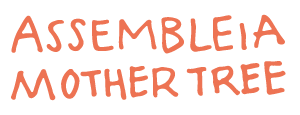Day 2 Session 4
We Are Nature
Principal delegates: Emanuele Coccia, Fabio Rubio Scarano
Respondents: students of ZHdK
Indigenous views of nature and life, as described by Eduardo Viveiros de Castros are based on the idea of “multi-naturalism,” a finely defined realm of both self-similarity and difference within the world of plants, animals, and humans expressing different embodiments and affects. Nature is not a tamed and transparent backdrop to human activity and exploitation, but is rife with strong forms of agency that exert a significant influence on universal processes at large. Teacher plants, which are regarded as medicine, are addressed with highest respect. They are used to express authority and embody wisdom within the community.
La vie des plantes (The Life of Plants), a recent publication by Emanuele Coccia develops an original “phytophilosophy,” very much along such thinking, and arguing that plants are the medium through which we perceive and experience the world. On a chemical level, they are the creators of the world we live in, generate its oxygenic atmosphere, live from CO2 emissions, and use processes of photosynthesis to exploit the energies of the sun. Plants transformed life into an atmospheric condition, a space where everything mixes with everything else, and where everything is literally inside other subjects than their selves. Thinking is thus the breath of being, and not merely individual expression; it is a thinking with the universal that exists everywhere and in all possible forms.


